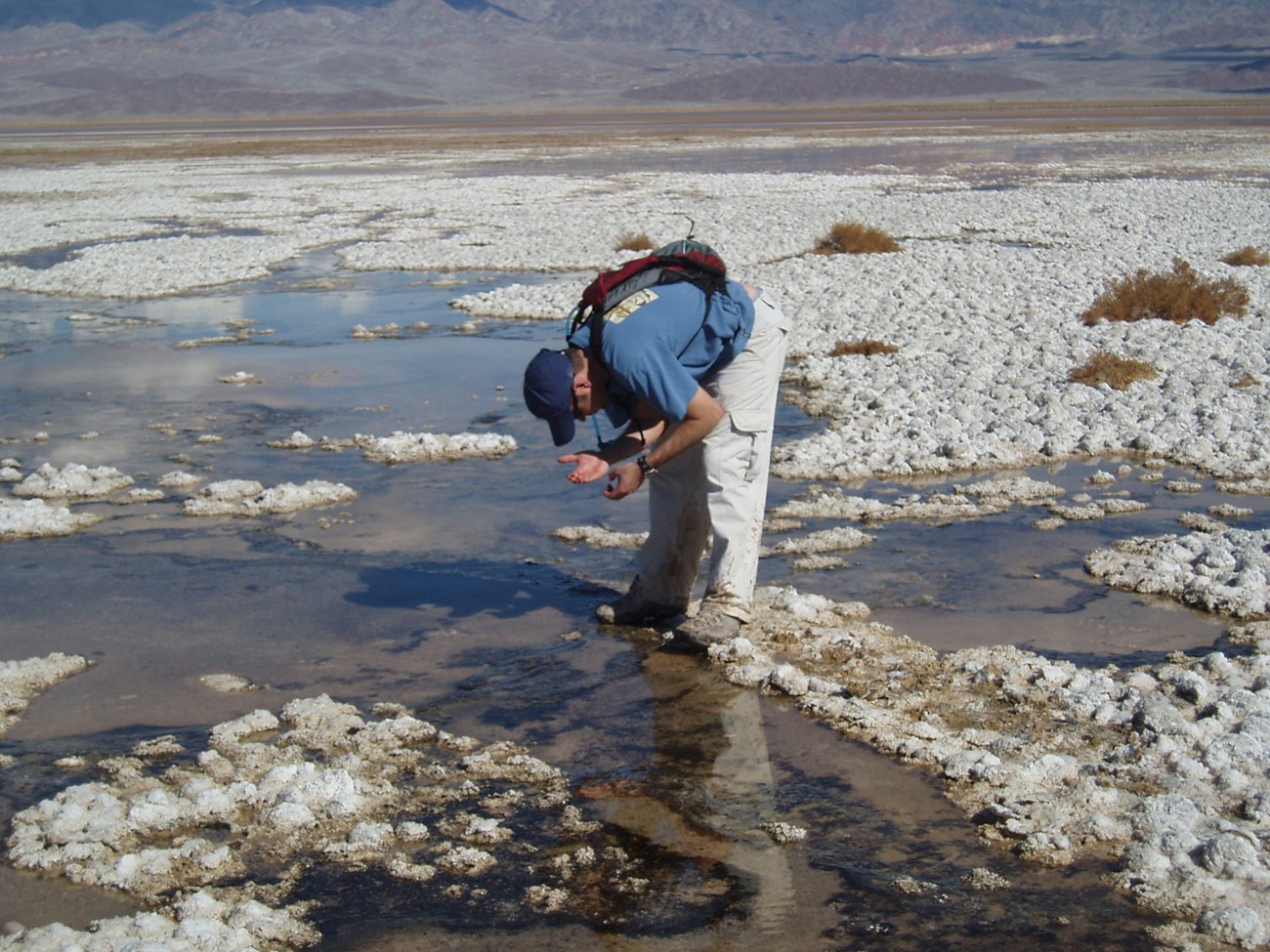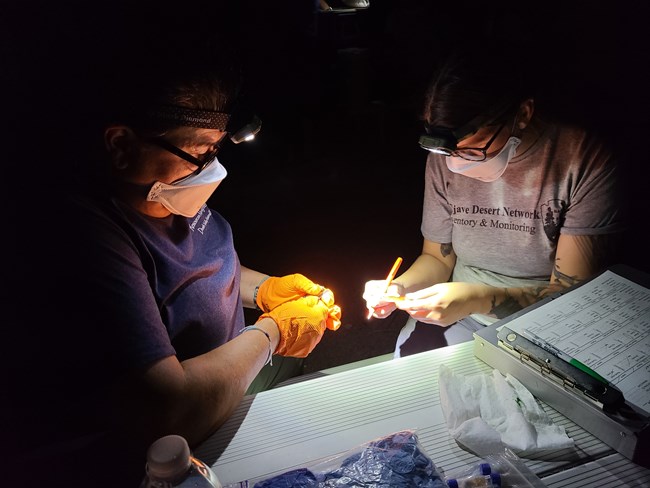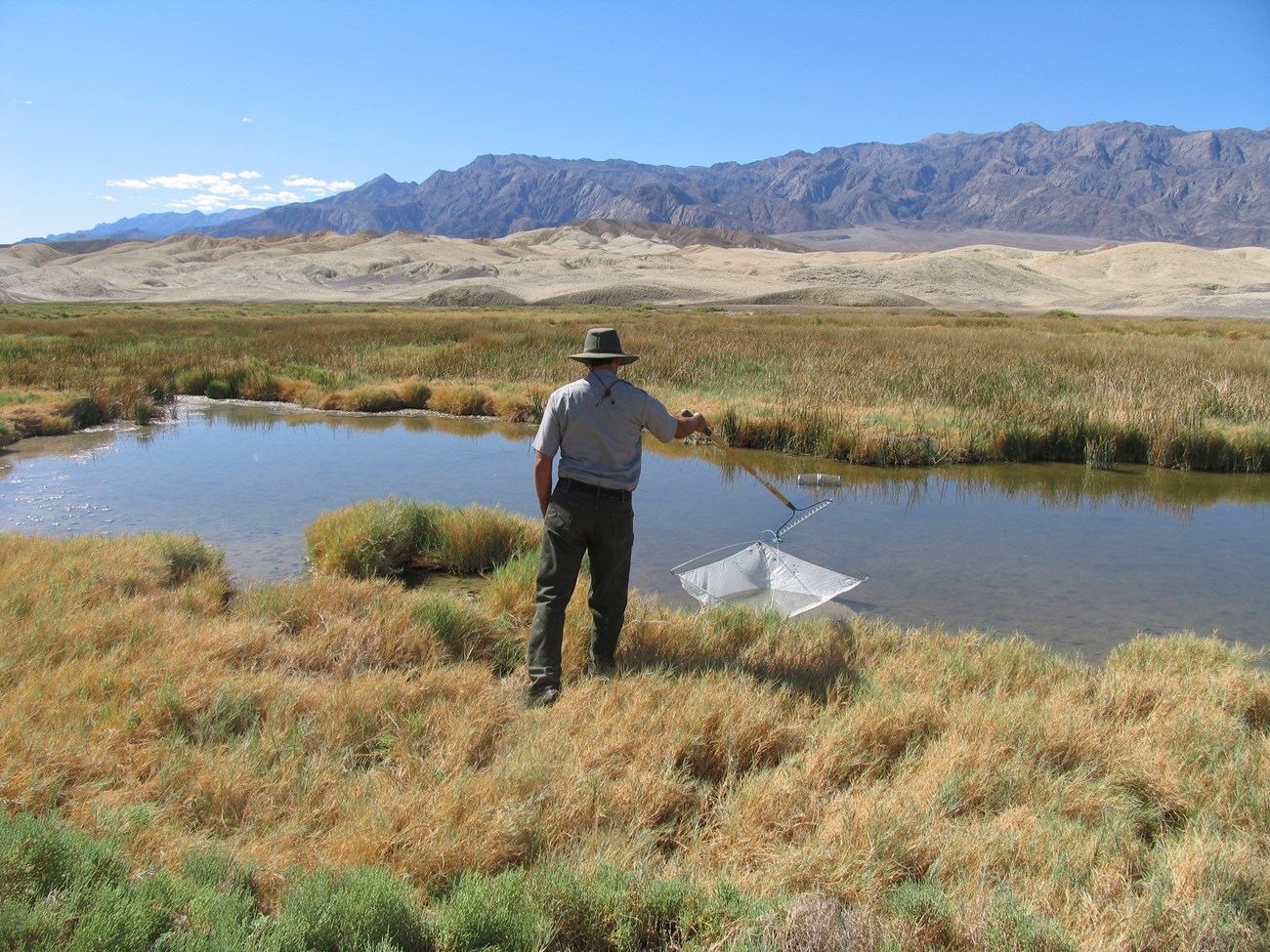
NPS Death Valley National Park is committed to the furtherance of science and expanding knowledge of the park’s resources. Annually, Death Valley National Park receives numerous requests to conduct scientific research within the park. Research activities may be performed by park contractors, cooperating agencies, non-profit or other governmental agencies, academic institutions, or individuals or other researchers who have a demonstrated record of accomplishments in the proposed field of investigation. Guidelines for Conducting Research: Permit Application Through the Research Permit and Reporting System (RPRS)

© Joey Danielson
Studies in which researchers will be handling or otherwise potentially impacting vertebrate animals must first submit their study for approval to the National Park Service’s Institutional Animal Care and Use Committee (IACUC) - Biological Resources Division. Approval letters and/or concurrence documentation from the NPS IACUC must be attached to the research permit application upon submission. Applications involving organisms (plant or animal) protected within these categories must be accompanied by current copies of all applicable state (California and/or Nevada, as relevant) and federal (U.S. Fish and Wildlife Service) permits. Some species that are state listed may not be federally listed, and vice versa. All species, proposed methods, and study areas must be specific to activities proposed for Death Valley National Park (Inyo / San Bernardino / Nye County) and clearly defined within the permits. Wilderness lands comprise over 93 percent of Death Valley National Park. These special areas have been preserved under the Wilderness Act of 1964 and are perhaps “the most protected public lands in America”. Research activities proposed in wilderness undergo extensive review by park officials, compliance specialists, and subject matter experts. Applicants proposing activities in wilderness must complete and attach a Minimum Requirements Analysis and Decision Guide to their application. Please use the map feature on the Wilderness Connect homepage to determine if your proposed project will occur in a wilderness area. Prior approval from the park is required for collection of any and all materials, whether plant, animal, rock, or soil. Specimens shall be cataloged following park guidelines as outlined in the permit conditions and by park curatorial staff listed on the permit. Collecting is never allowed from or near archaeological sites. The collection of specimens, whether retained or not, must be indicated with a “YES” answer in the Collection and Handling section of the application form. Any and all collections not degraded by scientific analysis shall remain property of the federal government. If retention is indicated, the system will prompt the Primary Investigator to complete an Appendix A Repository Agreement form. This must be submitted electronically with the application. A signed copy must also be provided to the Research Permit Coordinator. View this file for further instructions on this process. Important Considerations:

NPS/Ambre Chaudoin Additional Resources for Applicants:
Have an additional question? Please contact the Death Valley Research Permit Coordinator: Ben Dunphey. |
Last updated: July 2, 2025
